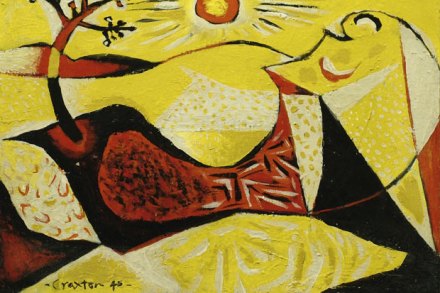John Craxton was more gifted than the Fitzwilliam show suggests
It is often said of John Craxton (1922–2009) that he knew how to live well and considered this more important than art. Perhaps there is a certain truth in this, but if he really believed it, did he have any business in being an artist? And an artist he undoubtedly was, by temperament and sensibility, as well as by the rich endowment of natural talent. Of course, letting it be known that you think life more important than art is a very good cover for that most debilitating (and paradoxically productive) of besetting fears: self-doubt. Craxton had it in large measure, and it is probably this quality that accounted both


















